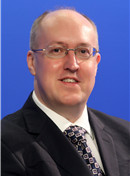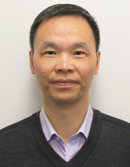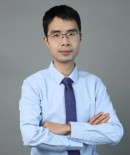
Prof. Andrew E.
Teschendorff
Chinese Academy of Sciences, China
Andrew Teschendorff studied Mathematical Physics at the University of Edinburgh (1990-1995) under the supervision of Physics Nobel Laureate Peter Higgs. In 2000 he obtained a PhD in Theoretical Physics from Cambridge University. In 2003 he became a Senior Research Fellow in Statistical Cancer Genomics at the University of Cambridge. In 2008 he moved to the University College London (UCL) Cancer Institute to work in Statistical Cancer Epigenomics and where he was awarded the Heller Research Fellowship. He currently holds an appointment as a PI at the CAS Shanghai Institute for Nutrition and Health, formerly a joint CAS-Max-Planck Partner Institute for Computational Biology, and remains an Honorary Research Fellow at the UCL Cancer Institute. Besides Statistical Cancer Epigenomics, his other research interests include Cancer System-omics & Systems Biology and Network Physics. He is an Associate Editor for various journals, notably Genome Biology, and a reviewer and statistical advisor for journals including Nature, NEJM and Science. During his career, he has been the recipient of many awards including Cambridge-MIT Initiative and Isaac Newton Trust Awards, a Wellcome Trust VIP Award, a CAS Visiting Professorship and a CAS-Royal Society Newton Advanced Fellowship. He holds various patents on algorithms for cancer risk prediction and cell-type deconvolution.

Prof. Huiyu Zhou
University of Leicester, UK
Dr. Huiyu Zhou received a Bachelor of Engineering degree in Radio Technology from Huazhong University of Science and Technology of China, and a Master of Science degree in Biomedical Engineering from University of Dundee of United Kingdom, respectively. He was awarded a Doctor of Philosophy degree in Computer Vision from Heriot-Watt University, Edinburgh, United Kingdom. Dr. Zhou currently is a full Professor at School of Computing and Mathematical Sciences, University of Leicester, United Kingdom. He has published over 450 peer-reviewed papers in the field. He was the recipient of "CVIU 2012 Most Cited Paper Award", “MIUA 2020 Best Paper Award”, “ICPRAM 2016 Best Paper Award” and was nominated for “ICPRAM 2017 Best Student Paper Award” and "MBEC 2006 Nightingale Prize". His research work has been or is being supported by UK EPSRC, ESRC, AHRC, MRC, EU, Royal Society, Leverhulme Trust, Invest NI, Puffin Trust, Alzheimer’s Research UK, Invest NI and industry.

Prof. Zhaoyuan Fang
Zhejiang
University, China
Dr. Zhaoyuan Fang is Principal Investigator, PhD Supervisor and Assistant Professor of Zhejiang University, and Adjunct Professor of the Second Affiliated Hospital, Zhejiang University School of Medicine. He has been extensively studying the systems biology of lung cancer for over 10 years, focusing on the important basic scientific questions related to lung cancer diagnosis and therapeutics, with >40 publications (total citations > 2700, H index = 24). Among them, he is the (co-)first or (co-)corresponding author for 8 papers since 2020 (average IF=17.2). He has been supported by 2 grants from NSFC and 1 grant from Zhejiang Province, and also participated in several other key grants.
